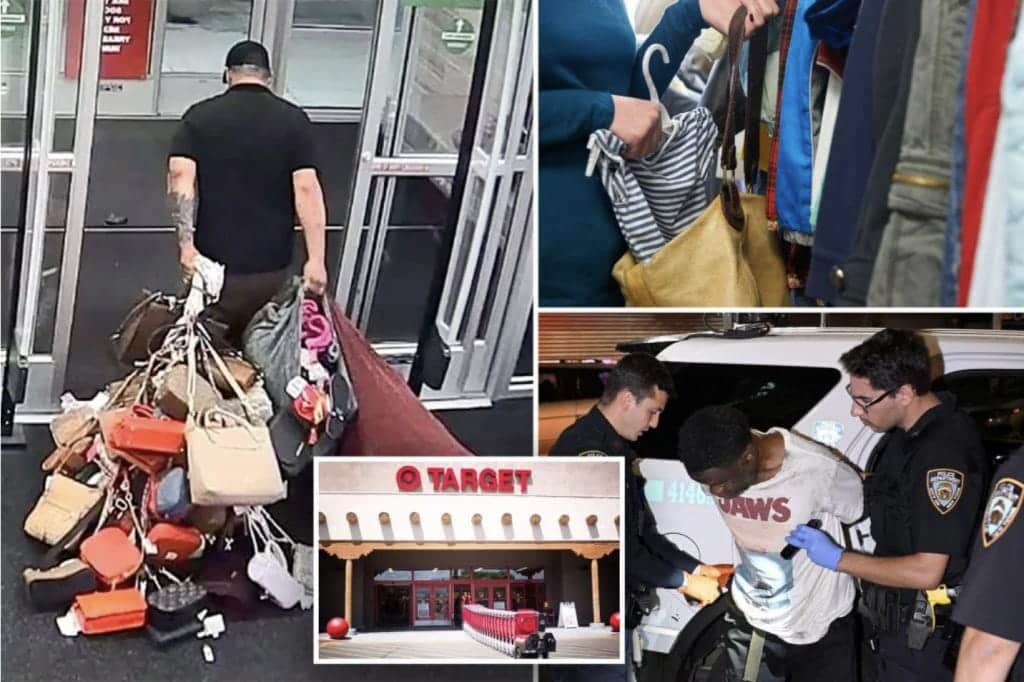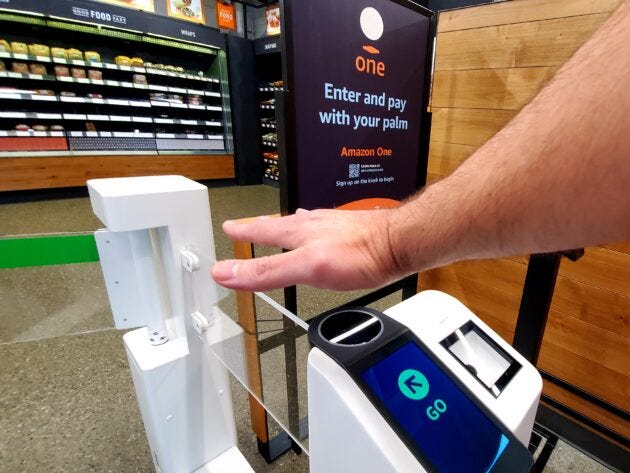Subscribe to Zero-Sum Pfear & Loathing



by James Corbett | corbettreport.com | Aug 27, 2023
If you’ve been following the news, you’ll know that shoplifting and looting have been on the rise across the US in recent months, with retailers from San Francisco to Portland to Washington, DC, forced to close up shop in the face of mounting losses from the spate of increasingly brazen burglaries.
And you’ll probably also be aware that the phenomenon is not confined to the US, with businesses in Canada and the UK and France and Australia and elsewhere similarly reporting an increase in robberies and theft since the scamdemic.
And you’ll doubtless have heard the various explanations for this phenomenon doled out by the faithful media mouthpieces of the controlled two-party paradigm:
It’s soaring inflation and the cost of living crisis that’s causing desperate people to turn to crime!
No, it’s the godless Commifornia politicians and the “woke” defund-the-police mob who are to blame!
No, it’s the scamdemic lockdowns that caused people to forget basic civility!
No, it’s the illegal immigrants!
No, it’s an organized conspiracy of retail workers!
etc.
Of course, there are grains of truth in all of these explanations, but none of them get to the real heart of the matter. So, what’s really behind this explosion in retail theft? And, more to the point, what do the powers-that-shouldn’t-be have in store as their “solution” to this (generated) problem? The answers may surprise you.

Although the reality of a surge in shoplifting is disputed by some, it’s getting harder to deny that dramatic acts of retail theft are becoming more commonplace in this era of the Brave New Normal.
Just ask retailers in California, where increasingly audacious acts of looting and pillaging are being committed by groups of thieves—and, in some cases, even organized flash mobs—on a daily basis.
And the robbers aren’t just targeting luxury retailers (though they certainly are targeting them), they’re also going after mom-and-pop stores and local, family-owned businesses, too.
And it’s not just soft-on-crime California where burglary is out of control. Similar surges in retail theft are being seen in Seattle and New York and Portland and Chicago and Washington, D.C.
And it’s not just a problem in the US. Shoplifting is up in Canada and Ireland and the UK and even the Netherlands.
Heck, shoplifting has gotten so bad in jolly ol’ England that upscale supermarket chain Waitrose is now offering free coffee to police officers in a ploy to boost law enforcement’s presence at their stores.
So, what on earth is going on here? There are as many explanations for this seemingly global crime spree as there are talking heads and op ed writers.
Broadly speaking, commentators on the left blame the problem on systemic issues, from corporate greed and surging inflation to systemic poverty and oppressive capitalism.
Commentators on the right, meanwhile, pin the blame on progressive legislators’ decision to essentially decriminalize shoplifting and on law enforcement’s inability to establish law and order in the face of increasingly hostile anti-police sentiment.
As usual, there is an element of truth to all of these claims. But none of these factors are so fundamentally different than they were a few years ago as to account for such a surge in retail theft. Surely there must be something bigger going on here, right?
Of course there is.
One interesting part of this shoplifting pandemonium that is only beginning to get attention is that retailers themselves seem to be adding to the problem. You see, not only is California’s Senate looking to pass legislation to stop employees from confronting shoplifters, more and more companies are now adopting an official policy expressly forbidding their employees from intervening in the event of retail theft, no matter how blatant. Indeed, this past summer, Lowe’s and Lululemon both made headlines for firing employees who tried to confront shoplifters. And just last month a Colorado supermarket employee was fired for merely filming a shoplifter in the act (an action for which he was commended by local police).
At the surface level, it’s no surprise that big corporations and box store retailers would implement a no-confrontation policy. They’re worried about the legal liability they may have if an employee/shoplifter confrontation ends in injury or death. But there’s an even more fundamental question we have to ask if we want to know why corporations are firing their own employees even as they’re losing billions of dollars or why legislators are working to decriminalize shoplifting even as retail theft explodes or why the establishment media are effectively advertising to would-be thieves that they will not be prosecuted or even confronted no matter how blatant their criminality. And that question is: cui bono?

If you’re a regular person, you might wonder how corporations or politicians or law enforcement could possibly benefit from increased shoplifting. If nothing else, it’s a drain on the economy, isn’t it? And, if unchecked, it could embolden criminals to escalate their actions into the realm of aggravated robbery and violent crime, couldn’t it?
How could anyone possibly benefit from this criminality?
But let’s imagine for a moment that you’re not a regular, psychologically stable, law-abiding citizen. Let’s imagine instead that you’re a psychopathic eugenicist hell-bent on bringing in a technocratic police state, one in which you have total control of the economy and every transaction taking place within it. In that case, your agenda might be very different from that of the average person.
You may, for example, be the an online business owner who wants to put regular, brick-and-mortar retailers out of business altogether.
Or you may be a technocrat looking for ways to get the public to accept increased biometric surveillance of their activities and to condition them into presenting their digital ID during every transaction.
Or you may be a central bankster hoping to get Joe Sixpack and Jane Soccermom to embrace the new cashless economy that you’re planning to foist on them.
And if that’s the case, then, boy, is a surge in shoplifting (or even the perception of such a surge) just the solution for you!
After all, what “anti-theft” measures are being implemented on the back of this retail crime wave?
Well, retailers are increasingly deciding to lock up their products, effectively treating shoppers as criminals-until-proven-otherwise and putting a further inconvenience in their shopping experience.
And, as a result, frustrated shoppers are turning their backs on brick-and-mortar businesses and vowing to buy everything on Amazon. (Or, more cynically, characters that may or may not be completely fictional are posting TikTok videos saying that they’re turning their backs on brick-and-mortar business and vowing to buy everything on Amazon and getting plenty of tabloid press coverage for doing so.)
Other stores are using the shoplifting scare as cover for putting up biometric scanners (for the purpose of identifying repeat shoplifters, you understand).
And yet others are using the threat of thieves as an excuse to expedite their cashless payment agenda, preparing the public for the future (or is that the present?) in which you’ll have to download an app or scan your palm print in order to enter a store and all the items you leave with will be automatically charged to your account.
Yes, as usual, the real action in this unfolding drama is in the reaction. Whether the problem of retail theft is authentic or completely synthetic, whether it’s a natural phenomenon or part of a grand conspiracy, whether it’s actually happening or just made-up media hype is beside the point. The point is that once you feel the problem to be real, the would-be social engineers know that they can present their pre-arranged “solution” to this problem to a terrified public and the majority will go along with it.
“Of course we need to fingerprint and iris scan to shop in the real world these days. And of course we can’t use cash to make our purchases anymore. How else could we possibly solve the shoplifting crisis?!”

So, assuming we don’t want to go down the technocrats’ pre-determined route of increasing surveillance and cashless technology to “solve” the shoplifting crisis, what can we actually do?
One of the simplest things to note about the most brazen acts of organized shoplifting is that there is a common denominator to these events: they all take place in large urban areas. You don’t see flash mobs of dozens of people looting the local luxury retailer in Smalltown, Nowheresville, if only because such rural communities don’t tend to have luxury retailers. So, on the personal level, taking a cue from Jason Aldean’s recent surprise number one hit song, perhaps one way to insulate yourself from this problem is to relocate out of the big cities.
But on a broader level, we can (as usual) take our cue about which direction we should be heading in by simply doing the exact opposite of what the Powers That Shouldn’t Be want us to do.
So, if they want us to shun brick-and-mortar retail in favour of online shopping, we should be supporting the brick-and-mortar stores!
If they want us to submit to giving up our palm prints or downloading an app in order to enter their stores, we should boycott the stores that implement such systems.
If they want to reduce the shopping experience down to the most depersonalized, computerized, soulless interaction possible—complete with locked-down products and cashless payments and workerless stores—then we should be striving to create and support the vibrant, human, face-to-face interactions of the agora.
My readers will already know what this peer-to-peer economy entails: people transacting in cash or survival currencies in the free market, supporting local growers in REKO rings and farm shares, getting to know local businesses and choosing to support sellers who have shown that they will stand up against the authoritarians.
And you will already know how to do this: by meeting like-minded people, building community with them and engaging in buycotts to direct your resources (be that in the form of cash or complementary or alternative currency or precious metals or decentralized currency) toward those businesses you wish to support.
This is what the technocrats fear the most: that, rather than panicking and looking to governments and technocrats to “protect us” from the bad guys by treating us all as prisoners and locking down society with their technology of enslavement, we will take matters into our own hands, eschew the big corporations and government, and create (and police) our own marketplace of free human beings.
We know what we need to be doing, so what are we waiting for? Let’s go out there and do it.